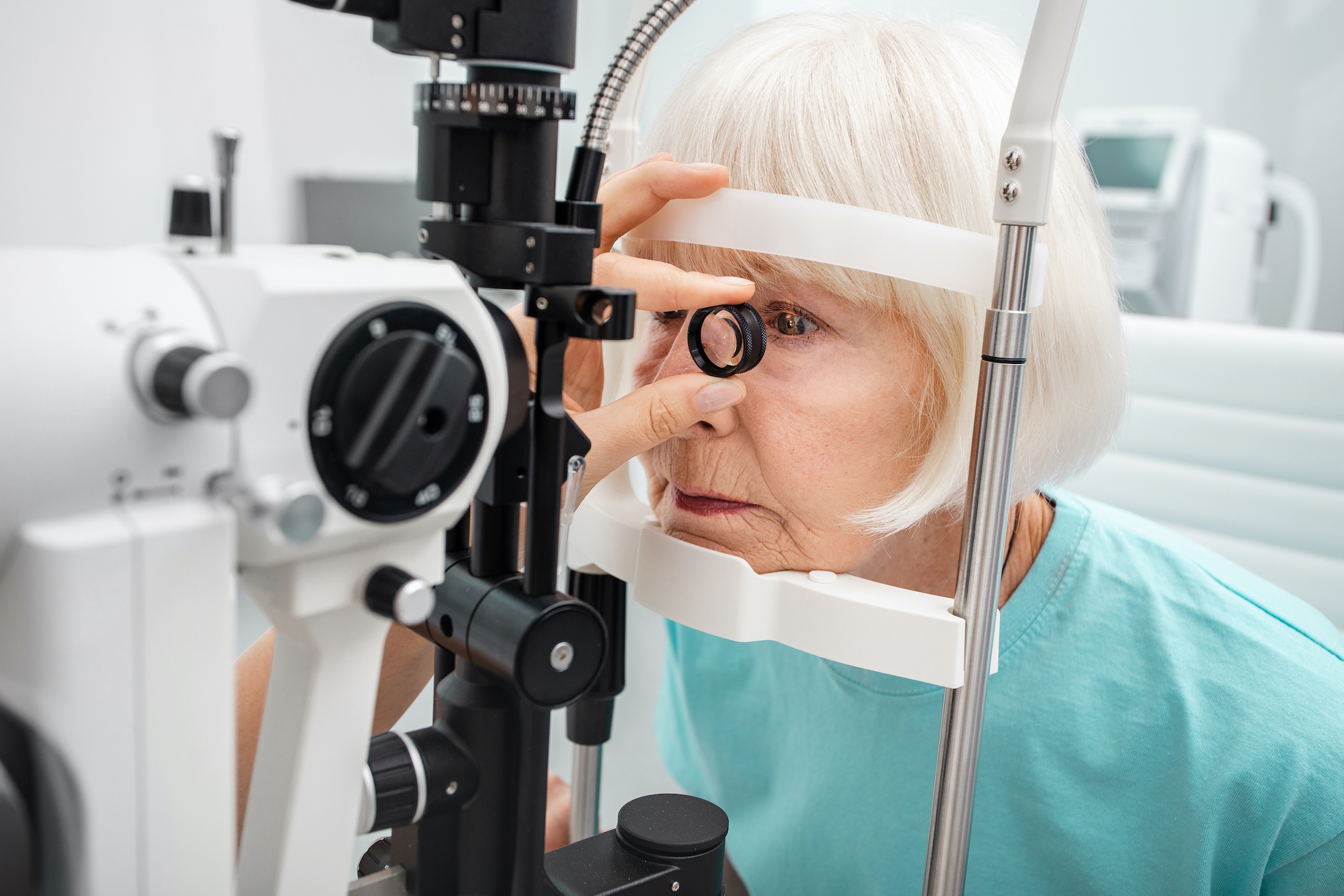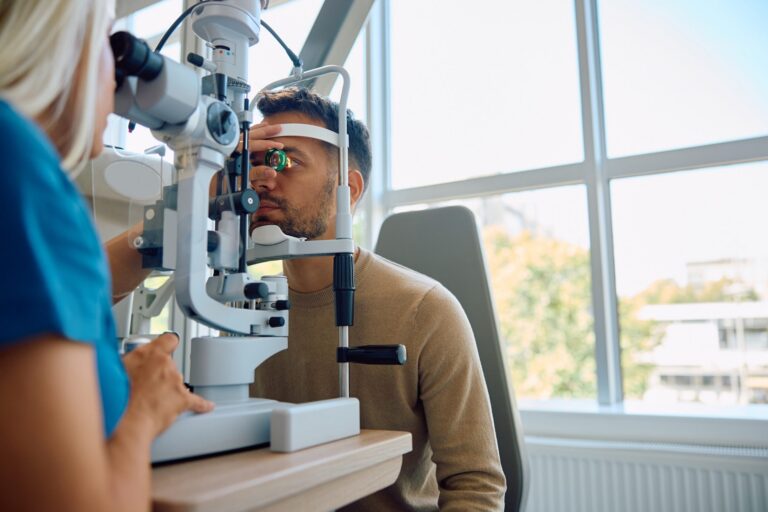
What is Macular Degeneration?
The macula is the centermost part of the retina, and it controls our central vision. Our central vision helps us clearly and sharply see specific shapes, colors, and outlines. Every day, we use our central vision to perform specific tasks, including reading and driving. Unfortunately, as we start to age, the macula can start to weaken and deteriorate, particularly in adults 60 years and older. Macular degeneration has two types, dry and wet, and both are the main reason for vision loss in elderly men and women. Patients who have macular degeneration commonly have affected central vision but can use their peripheral vision to compensate for their progressive vision loss.
Currently, there is no cure for macular degeneration for either wet or dry, but with new innovative techniques and treatments, ophthalmologists can slow or stop this disease progression. At Ophthalmology Associates of the Valley in San Fernando Valley of Los Angeles, CA, our professional group of board-certified ophthalmologists is always knowledgeable about the latest research and technology for macular degeneration.
If you have recently experienced any unusual changes in your eyesight, please call one of our offices in Encino or West Hills to schedule a consultation.
What are the signs of macular degeneration?
Dry and wet macular degeneration both happen as men and women start to age, but the symptoms can range for each person. Dry macular degeneration is typically the most common of the two types and progresses slower. Generally, patients with dry macular degeneration can keep some of their central and peripheral vision. Wet macular degeneration is the less common form, and the symptoms are faster and more severe. At Ophthalmology Associates of the Valley in both Encino and West Hills, our team is proud to offer advanced vision services that help treat dry and wet macular degeneration.
Dry Macular Degeneration
If you have dry macular degeneration, you may experience certain symptoms, including:
Wet Macular Degeneration
Patients with wet macular degeneration may have symptoms, such as:
What Are the Risk Factors of Macular Degeneration?
Macular degeneration can stem from a wide array of considerations, including:
How is macular degeneration diagnosed?
Our board-certified ophthalmologists at Ophthalmology Associates of the Valley in Encino and West Hills will perform a detailed dilated eye exam. We will check your vision and use advanced diagnostic imaging tools Optos Fundus Photos and macular OCT to create detailed cross-sectional images of the retina layers. In some cases, fluorescein angiography may be used to detect abnormal blood vessel growth or leakage to guide treatment.
Early detection through routine eye exam is integral to managing progression and preserving vision.

How do you treat Macular Degeneration?
If you have dry macular degeneration, we provide AREDS2 specialty vitamins that target vision loss caused by aging. AREDS2 supplements have natural ingredients, such as zinc, lutein, and zeaxanthin, which slow the progression or stop the symptoms from becoming worse. We also offer Syfovre® injection, a newer treatment for geographic atrophy in patients with more advanced dry macular degeneration.
If you have wet macular degeneration, we offer anti-VEGF injections to stop disease progression and improve vision. Avastin and FDA-approved Eylea®, Lucentis®, and Vabysmo® injections are available in our Encino and West Hills offices to treat your condition.

Regain Your Quality of Life
Our group knows that a macular degeneration diagnosis is stressful, or sometimes even scary, but please know that we strive to help you manage and feel knowledgeable about your treatment options. At Ophthalmology Associates of the Valley in San Fernando Valley of Los Angeles, CA, our board-certified ophthalmologists provide advanced treatment options that may improve your central vision and eye health.
Please schedule an appointment at either of our offices in Encino or West Hills. Our goal is to help you live more comfortably.
Macular degeneration FAQs
Regain your quality of life
Our group knows that a macular degeneration diagnosis is stressful, or sometimes even scary, but please know that we strive to help you manage and feel knowledgeable about your treatment options.
At Ophthalmology Associates of the Valley in San Fernando Valley of Los Angeles, CA, our board-certified ophthalmologists provide advanced treatment options that may improve your central vision and eye health.
Please schedule an appointment at either of our offices in Encino or West Hills. Our goal is to help you live more comfortably.






